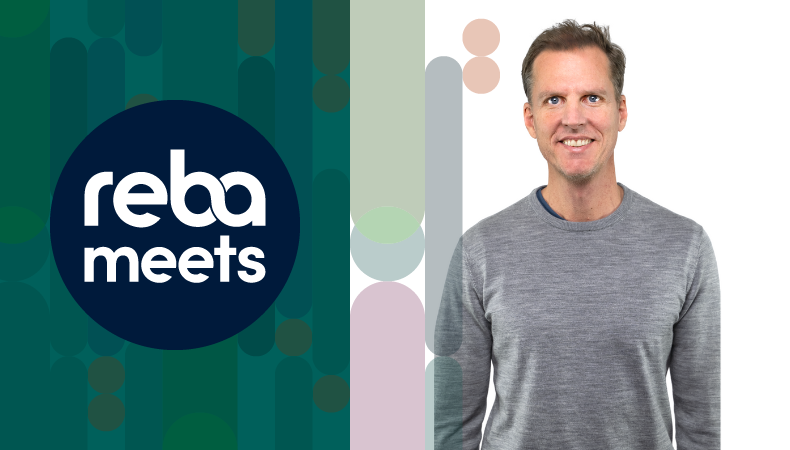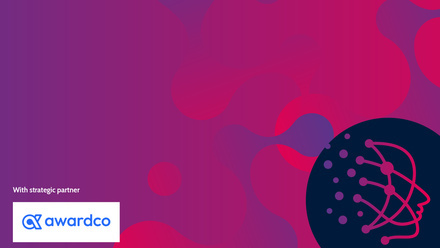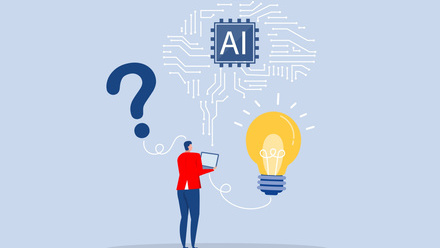Peppy co-founder and CEO Evan Harris on integrating AI into benefits
There’s an intriguing synergy between introverts and entrepreneurs.
Though there’s a long-held belief that business-owners shine brightest in the spotlight, there’s a growing body of research that finds introverts are likely to make the most successful entrepreneurs.
The secret to an introvert’s success, according to Forbes, is an ability to recognise that introversion is an asset that helps to make smart decisions and solve problems.
Throughout his career, that’s what Evan Harris, co-founder and CEO of employee benefits tool Peppy, has prided himself on.
A self-described introvert, Harris is a little shy of going under the microscope for our latest REBA Meets interview.
But behind this initial hesitation is a smart, savvy and determined business leader hoping to use AI to revolutionise the benefits space.
“I’ve always had a self-identity as an entrepreneur more than a corporate person,” says Harris. “It sounds pretentious but I have this need to create and if I can’t I’m kind of blocked.”
Peppy is Harris’s third startup, the first a backpacker website in the dot-com bubble, and the second, well, no one knows about the second.
“It’s so embarrassingly bad, not even my Peppy co-founders know what it is.”
But Peppy, which was founded in 2018, is a different beast. Filled with learnings from years of working in startups, healthcare and consultancies, Harris set up Peppy with co-founders Max Landry and Mridula Pore to offer a new approach to healthcare.
Its original intention was to help users find niche areas of health such as swimming coaches, running coaches and physiotherapists. This aligned with Harris’s genuine passion for health.
“I was really into functional medicine, which I guess would probably now be called longevity preventative care,” he says. “I often wear a continuous glucose monitor and do blood tests all the time. I’m about to do a full body MRI and I’m usually reading four books on the go, one of which is always fitness related.”
Though Peppy started as a niche healthcare connector; after uploading post-natal content on the app, Harris noted an explosion of interest from users wanting more information in that area.
This then spurred further research into the subject, which found reams of data linking the gender pay gap to parenthood and inequalities in women’s health.
Harris says: “It was a new area, and it’s always hard to get your first clients as no one wants to be first. It took us over 12 months, and you’ve got to stay live that long, so it was hard.
“But we knew from day one that the NHS, for all its benefits, is on a collision course to collapse. However bad you think it is, it’s much worse when you’re on the inside. That was my experience of working within the NHS. So we knew we had something with Peppy.”
Disruptors in the market
Peppy continued to grow as it added a suite of services in specialised support, starting with menopause in 2019, which was a taboo among friends at the time, never mind workplaces.
When Peppy launched its first enterprise menopause benefit, things really took off. It later added fertility, men’s health and women’s health, leading the market in inclusive healthcare services in the UK and beyond. Peppy was pushing out content to get organisations to take specialist healthcare seriously.
Its digital health app is now available to well over a million users and has an impressive set of employers including JP Morgan, NatWest Group, Microsoft and Santander in its stable.
Not one to rest on his laurels, Harris was keen to find out what the next big challenge for employers was.
He says: “We booked 10 meetings in a week and asked these really credible employers about their main problems. They all said they had benefits which cost a lot of money but either the workforce doesn’t know they exist, or they don’t understand the value the benefits provide.
“The classic one is PMI [private medical insurance]. The PMI providers struggle to communicate the full scope of their own policies to their own members.
"You have these 60-page policy member handbooks which are great for an actuary, but are almost indecipherable for the average human. This is a real shame as PMI coverage is usually fantastic and is more important than ever as the NHS continues to struggle.”
Peppy had already been researching how to best apply AI, and soon realised that the technology could help to solve the long-standing benefits engagement problem.
Harris says: “Healthcare and AI is a match made in heaven. We hired machine learning experts, and instead of putting AI in future clinical products, we decided to put it into the platform of these products instead.
“Chat GPT was for a lot of people the moment where AI was able to be deployed reliably. With AI you’ve got a chance to have proper personalised healthcare, and the clinician is much more informed about you as a patient to make better decisions.”
“We’re now exploring the personalisation opportunities for an individual employee with their own life, their own preferences and own goals. If a platform knows this, it means being able to direct the utilisation of a benefits package much better.”
Ready to launch
Currently in testing mode, Peppy’s new AI platform is set to go live in January and has already got tongues wagging in the benefits industry.
The platform includes an AI chatbot which learns from employee interactions to triage and advise on the most valuable benefits, offering preventive support by identifying early warning signs. If take up is good, the results could be transformative.
But a platform is only as good as the data it feeds on. Historically, benefits data has been sat in silos. Some with the insurer as claims data, other parts with a clinician and some to the benefits provider. Yet Harris is optimistic the new platform can help to synergise all this data into one place.
He says: “For years employers have had to take raw data sources, stick it into an excel to create a report or into a data warehouse. The data then becomes inflexible and often inaccurate. But AI makes a lot of that significantly easier.
“An AI provider like OpenAI doesn’t see this data, it’s anonymised. We don’t share any names, your identity is kept private in the same way we’ve been storing clinical data for the last five years.”
Harris is transparent about the long and gruelling hours he and the rest of the team are putting in to make the platform a success. With two distinct areas of the business, will it make the role as CEO even more time-consuming?
“I think the platform is going to bring the Peppy clinical products to life,” he says. “We struggle sometimes to make employees aware of just how rich the Peppy app is. So we’re all in on getting this platform out, and it’s going to get better and better.”
The new year may well bring lots of glad tidings and new beginnings to the benefits industry, with digital transformation as a key driver to both business products and benefits strategies.
Harris doesn’t expect Peppy to have all the answers and is the first to admit there’s still work to be done. But his passion for reimagining what employee benefits can do is infectious.
He says: “There’s too much to learn, but that’s what I really like.”







